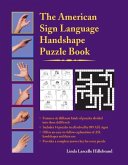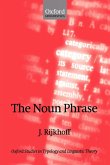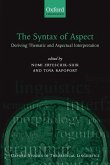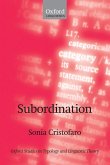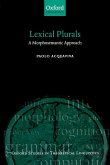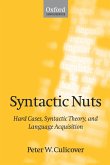The phenomenon of unaccusativity is a central focus for the study of the complex properties of verb classes. The Unaccusative Hypothesis, first formulated in 1978, claimed that there are two classes of intransitive verbs, the unaccusative (Jill arrived) and the unergative or agentive (Jill sings). The hypothesis has provided a rich context for debating whether syntactic behaviour is semantically or lexically determined, the consequence of syntactic context, or a combination of these factors. No consensus has been reached. This book combines new approaches to the subject with several papers that have achieved a significant status even though formally unpublished. Among the issues the authors address are: the determination of the unaccusative class of verbs, the problem of unaccusativity diagnostics, the implications of special morphology for the structural representation of unaccusatives and the status of the external thematic role, the properties guiding the unergative versus unaccusative distinction in acquisition, and the properties of second-language lexicon.
Hinweis: Dieser Artikel kann nur an eine deutsche Lieferadresse ausgeliefert werden.
Hinweis: Dieser Artikel kann nur an eine deutsche Lieferadresse ausgeliefert werden.


